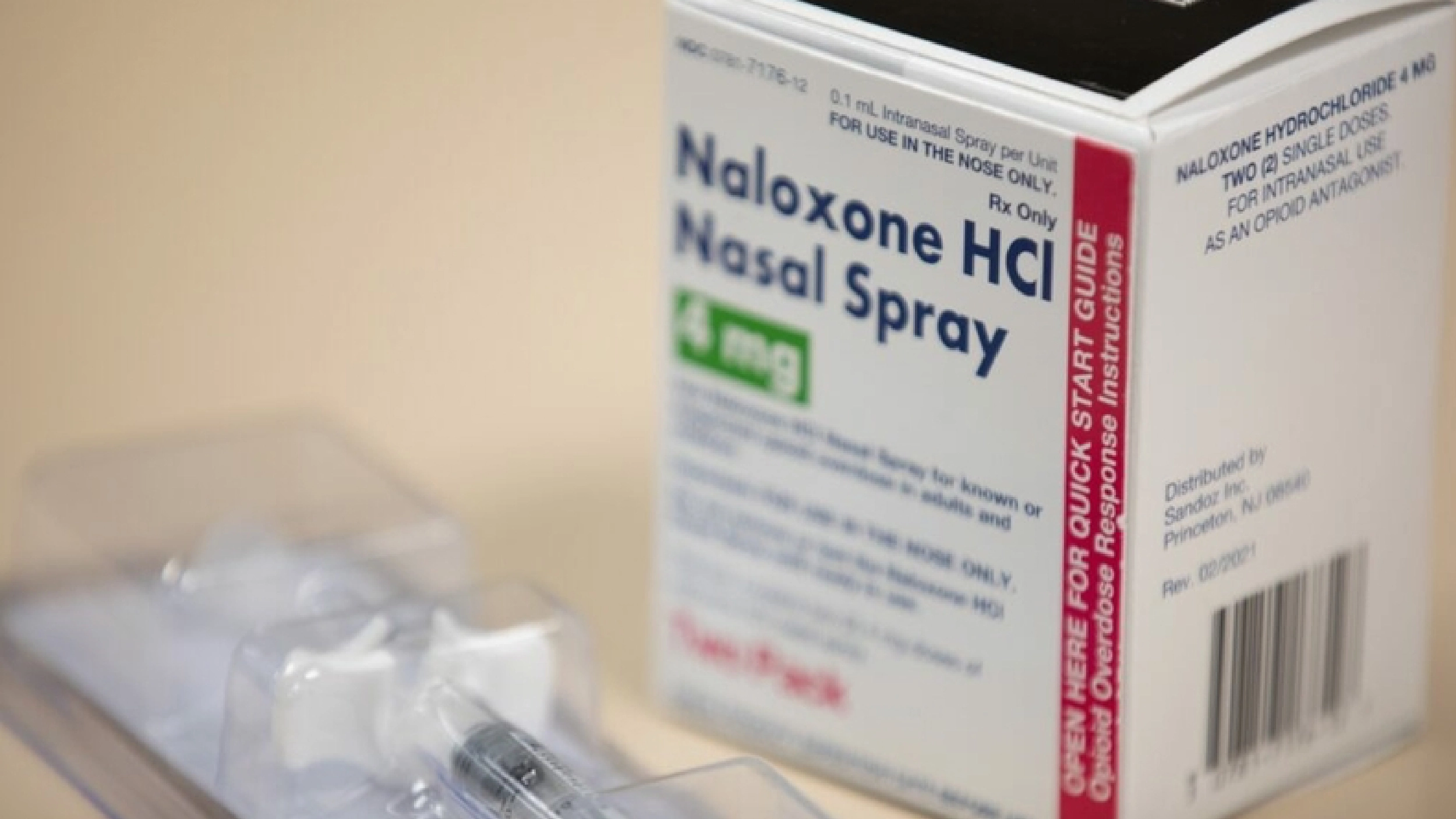
A Guide To Repairing Family Relationships
Discover expert tips for repairing family relationships and fostering healthy connections with The Recovery Team.

For many people, consuming alcohol is a pleasant way to relax after a long day. However, if your drinking becomes more frequent, it may soon become an addiction.
Alcohol addiction, also referred to as “alcohol use disorder,” is a medical condition caused by excessive and regular alcohol consumption. Because of this excessive consumption, the body becomes dependent on alcohol to function normally in daily life.
Alcoholism is the most common form of substance use disorder in the United States. In 2020, more than 28 million people aged 12 and older met the criteria of alcohol use disorder.
Taking the critical first step in seeking help for your alcohol abuse problem can be challenging. However, the good news is that you can overcome this condition with medical care and ongoing recovery efforts.
When you are struggling with alcohol addiction, you may feel like there is no end to this dark tunnel, but you are not alone and don’t deserve to live like this. With professional treatment and family support, you can overcome your alcohol dependence.
Fortunately, many evidence-based treatment options are available today to help you or your family members recover from alcoholism.
At The Recovery Team, addiction treatment options can range from inpatient, outpatient, intensive outpatient, partial hospitalization, and therapies.
If you are struggling with alcohol problems, the mental health professionals at The Recovery Team can help you. Contact us today at (800) 817-1247!
Many symptoms can help you detect alcohol abuse. While many signs are obvious, some can be more difficult to spot. In addition, the intensity of alcohol misuse may play a part in the warning indicators a person exhibits.
For example, many people try to cover their alcohol misuse by drinking alone and isolating themselves from others. This makes it difficult for family members and friends to intervene and help their loved ones.
If you notice the following warning signs, seek professional help as soon as possible:
Helping a loved one who has a drinking problem can be difficult. But doing so can prove rewarding and impactful for your relationship with your loved one.
Here are some practical ways you can help a loved one that has an alcohol use disorder:
The causes of alcoholism are just as complex as the disease itself. No one set of rules explains why one individual becomes addicted to alcohol while another does not. Alcohol addiction can be caused by a variety of factors.
After a period of heavy drinking, your brain becomes dependent on alcohol to function normally. That dependence makes quitting for heavy drinkers tough and can result in unpleasant withdrawal symptoms.
Some of the more common causes that lead to alcoholism are:
If your parent or close relative has a drinking problem, your chances of developing alcoholism increase.
A part of this is due to genetics, while the other parts are dependent on the environment. Spending time with family members who drink heavily or abuse alcohol may induce you to do the same.
Alcohol is one of the most addictive legal substances in the United States. The addictive potential of alcohol overloads pleasure and reward centers in the brain, causing cravings for more alcohol.
A person may intend to stop drinking, but alcohol can affect impulse control and decision-making, making relapse more likely. This leads to alcohol addiction.
Trauma can make a person relive the experience over and over again. Some people may use alcohol as a self-medication to deal with trauma memories.
Some common types of trauma are:
People who have other mental health conditions, such as anxiety or depression, are at a higher risk of developing alcoholism. Many people use alcohol to help them cope with the symptoms of their mental condition, and excessive drinking can develop into addiction.
Alcoholism can affect people of all ages, races, gender, and family background. Risk factors are those factors that increase a person’s risk of developing alcoholism.
While having one or more risk factors for alcoholism does not guarantee that you will develop a drinking problem, it does increase your chances.
The most common risk factors of AUD include the following:
Drinking is socially acceptable and available almost everywhere, including restaurants, grocery shops, and sporting events, and is advertised all over. Because of its easy availability and acceptance, alcohol can potentially make a person addicted to it.
Society encourages the use of alcohol as a coping mechanism. For example, one might say, “relax with a glass of wine.” Many people pair alcohol with food, like pizza and beer.
Of course, these are just a few reasons why alcohol availability is a big risk factor for developing alcoholism.
Negative influences can affect people of all ages and backgrounds, especially when alcohol is involved.
Social pressure is an influence you feel from people to do something you would not do otherwise. The pressure to drink alcohol could come from a friend, coworker, classmate, or anybody you admire.
Social pressure can occur directly or indirectly. Direct pressure occurs when peers specifically ask you to do something. Indirect pressure occurs when you see others doing something and are motivated to do the same.
One of the major risk factors for substance abuse is a person’s environment.
Teens who lack support from family or live in an abusive environment are more likely to turn to alcohol to cope with their feelings.
People isolate themselves due to difficult familial situations or a lack of bonds with family members. This isolation may increase the chances of experimenting with alcohol and developing alcohol addiction.
Drinking alcohol has both short-term and long-term negative effects. While short-term effects may only last a few hours or days, long-term effects may last a lifetime.
The more often a person consumes alcohol, the higher the risk of developing alcohol-related issues in daily life.
Therefore, it is important to know how alcohol affects different aspects of your life.
Heavy drinking can lower inhibitions and reduce your judgment skills, leading to poor decisions and risky situations or behaviors, including:
Alcoholism can impact every single relationship a person has.
The following is a breakdown of reasons that affect a person’s relationship with a partner, children, parents, and other family members:
Alcohol abuse affects employment in several ways. Here are a few common ones:
The most likely health effect of a single session of heavy drinking is injury. However, depending on the circumstances, the types of injuries and their severity may vary.
Alcohol poisoning can occur when you drink alcohol in large amounts. Excessive alcohol use might affect your heart rate, breathing, and gag reflex, potentially leading to coma and death.
While physical scars fade with time, mental scars caused by alcohol-related trauma can last a lifetime. In addition, some injuries, such as head injuries, might not fully heal.
Overcoming an alcohol addiction can be a long and winding road. It may even feel impossible at times. But it isn’t.
If you’re ready to quit drinking and prepared to get the help you need, you can overcome your drinking problem, no matter how much you drink or how powerless you feel.
There are many effective alcohol addiction treatment options available. Most rehab centers use some or all of the following treatment methods:
Detox is an important first step in recovering from alcohol addiction. During the detox process, alcohol is completely flushed out of your system. Withdrawal symptoms usually start fading 1 to 2 weeks after starting a detox.
However, depending on the severity of your AUD, this process might take longer. After detox, you will be free to concentrate on other areas of your recovery, such as different activities, therapy sessions, and support options.
Residential alcohol rehab is essential for long-term sobriety. It allows people to live at a facility during treatment to promote long-lasting recovery.
Residential treatment:
Outpatient alcohol rehab is a common and very effective way of treating alcoholism. People can seek treatment for their AUD through outpatient rehabs without interfering with everyday commitments such as job, school, and family obligations.
Outpatient treatment:
An inpatient or outpatient rehab program for alcohol addiction offers a variety of therapy options. The most common therapies include the following:

Discover expert tips for repairing family relationships and fostering healthy connections with The Recovery Team.

Discover practical tips on how to set boundaries with people in this expert guide from The Recovery Team.

Naloxone saves lives. The Recovery Team shares how to reverse an opioid overdose with this drug.
When you made up your mind to stop drinking, the following tips can make it a bit easier for you:
The best treatment for alcohol abuse is determined by different factors, such as your age, how long you have been drinking, the amount of alcohol you have been consuming, and many others.
However, the most effective treatment for alcohol use disorder is the one that starts with a medical assessment. After that, detox is considered the most important to flush the alcohol out of your body entirely.
After completion of detox, the patient must enroll in long-term addiction treatment. Aftercare treatment is also encouraged to achieve long-term sobriety.
The US Food and Drug Administration (FDA) has approved three medications for the treatment of alcoholism. These medications come with their pros and cons; that’s why it is important to speak with your primary care doctor before taking them.
These medications are:
One of the best ways to stop using alcohol to cope with negative situations is to develop other effective coping mechanisms. Some examples of alternative coping skills include the following: